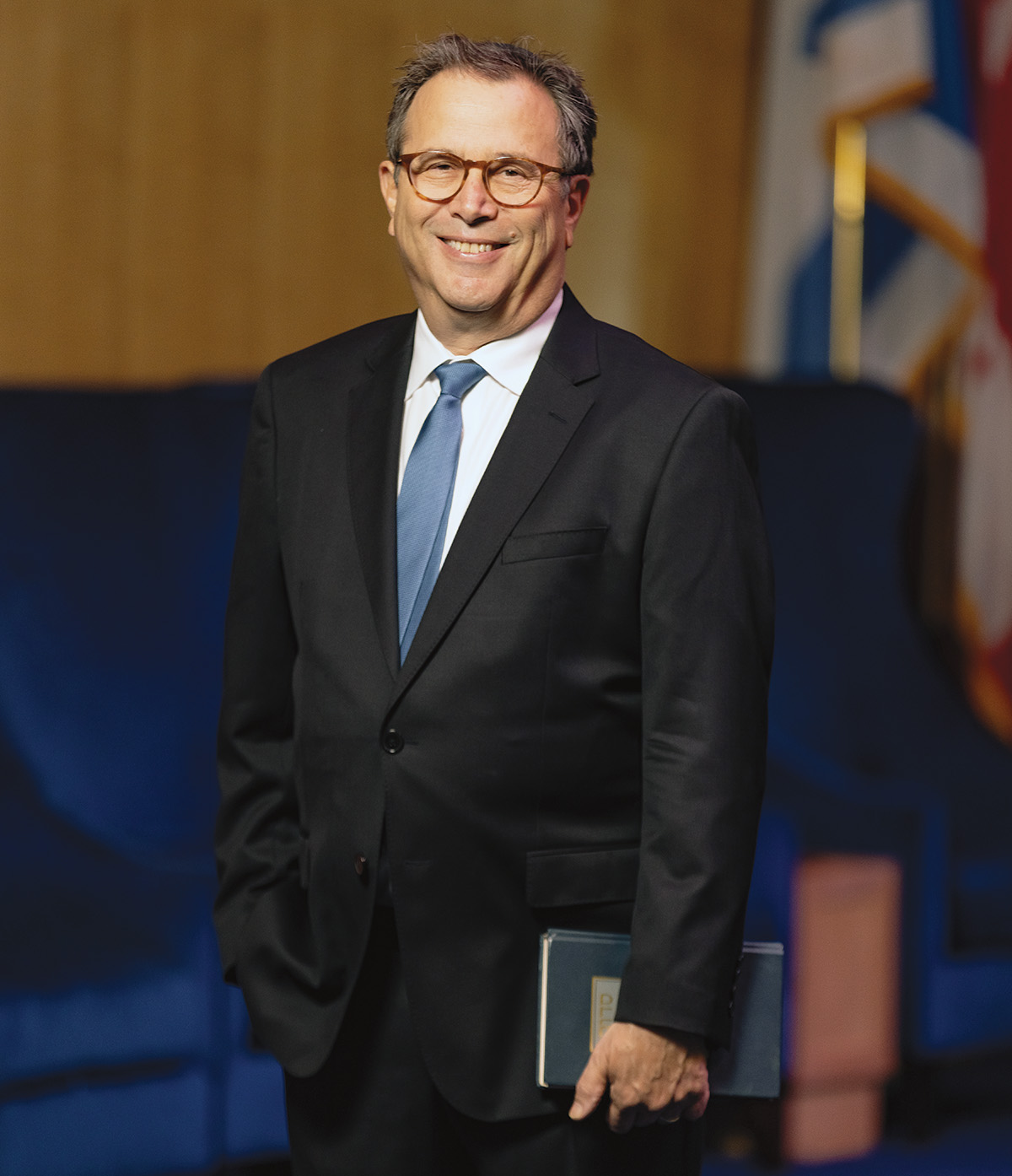For Rabbi David Steinhardt, the synagogue is your home—and that means not saving a seat. “Imagine [guests] coming into your living room and sitting down someplace. You wouldn’t say to them, ‘That seat is saved,’” he says. “I use that as a metaphor for what life is going to be like.”
In June, the rabbi retired after 31 years at B’nai Torah in Boca Raton; he watched the congregation and staff grow as well as its programming and community service.
A generation of his family was killed in Auschwitz, but the Jewish tradition and faith survived in the U.S. He says that unlike most kids, he loved Hebrew school, and the two men who shaped his faith are the Rev. Martin Luther King, Jr. and Jewish philosopher Abraham Joshua Heschel. “Those all became part of my understanding of what it meant to be Jewish, that is, to take responsibility in your society, to be able to look beyond the walls and outside the windows and be part of the world,” he says.
Originally from Connecticut, Steinhardt attended rabbinical school at the Jewish Theological Seminary in New York City. A battle that synagogues were facing at the time: whether to allow women to serve as rabbis. Steinhardt made a point to only work at a synagogue that permitted women rabbis.
He served in two Ohio synagogues, hosted interfaith services, worked with union strikers, welcomed Jewish Soviet refugees, participated in an AIDS task force with other religious leaders, and went toe-to-toe with Ohio Rep. Jim Traficant, who championed antisemitic causes in the House.
In 1994, Steinhardt moved to Boca Raton. At B’nai Torah, the staff grew from 10 to 140. He created an early childhood program, and he revamped the Hebrew school from a more sedentary format to activities- based; attendance more than doubled, to 85%. For two decades, Steinhardt led an interfaith clergy group with Rev. Andrew Sherman of St. Gregory’s Episcopal Church. In 2012, the temple launched the Tzedekah, Learning and Chesed (TLC) Program, including a Little Free Pantry, free showers and meals for the unhoused, literacy programs, a diaper bank and outreach to elders. The adult education program has grown to 250 participants.
ON CONSERVATIVE JUDAISM: My congregants are people that care about tradition and want to see it preserved or conserved but also understand that we’re living in a world that constantly changes, and we do have to be responsive to those types of changes. I spoke about women becoming rabbis and the role of women in the synagogue, which is no longer an issue. It’s fully accepted. But it also has to do with accessibility to differently abled people and the projects that we have, like for our bar and bat mitzvah program. It also has to do with the attitude towards and the full acceptance of gay people or LGBTQ populations in our congregations.
POLITICS AND RELIGION: I speak about the values that I see as essential for us to uphold as religious people, and so sometimes people don’t like to hear that. I find that most of my congregants really do want to hear what I have to say about these things, and I don’t get into policy. I think it’s really, really murky waters for rabbis to get into policies and politics. And that’s interesting, because when I grew up, rabbis were very outspoken in the antiwar movement, very outspoken when it came to civil rights and congregations.
THE HOLOCAUST AND JEWISH IDENTITY: It’s very important that the Holocaust be something everybody is aware of, and we learn about it and we memorialize it appropriately. But on the other hand, we don’t want to just focus on Holocaust education or oppression as being the central part of our identity. We want our identity to be based on aspiration and on hope and on celebration, and we have to be able to integrate those two things.
HIGHLIGHTS: Weddings are the best part about being a rabbi. I love it. My next career, I want to be a party planner.
This story is from the July/August 2025 issue of Boca magazine. For more like this, click here to subscribe to the magazine.







